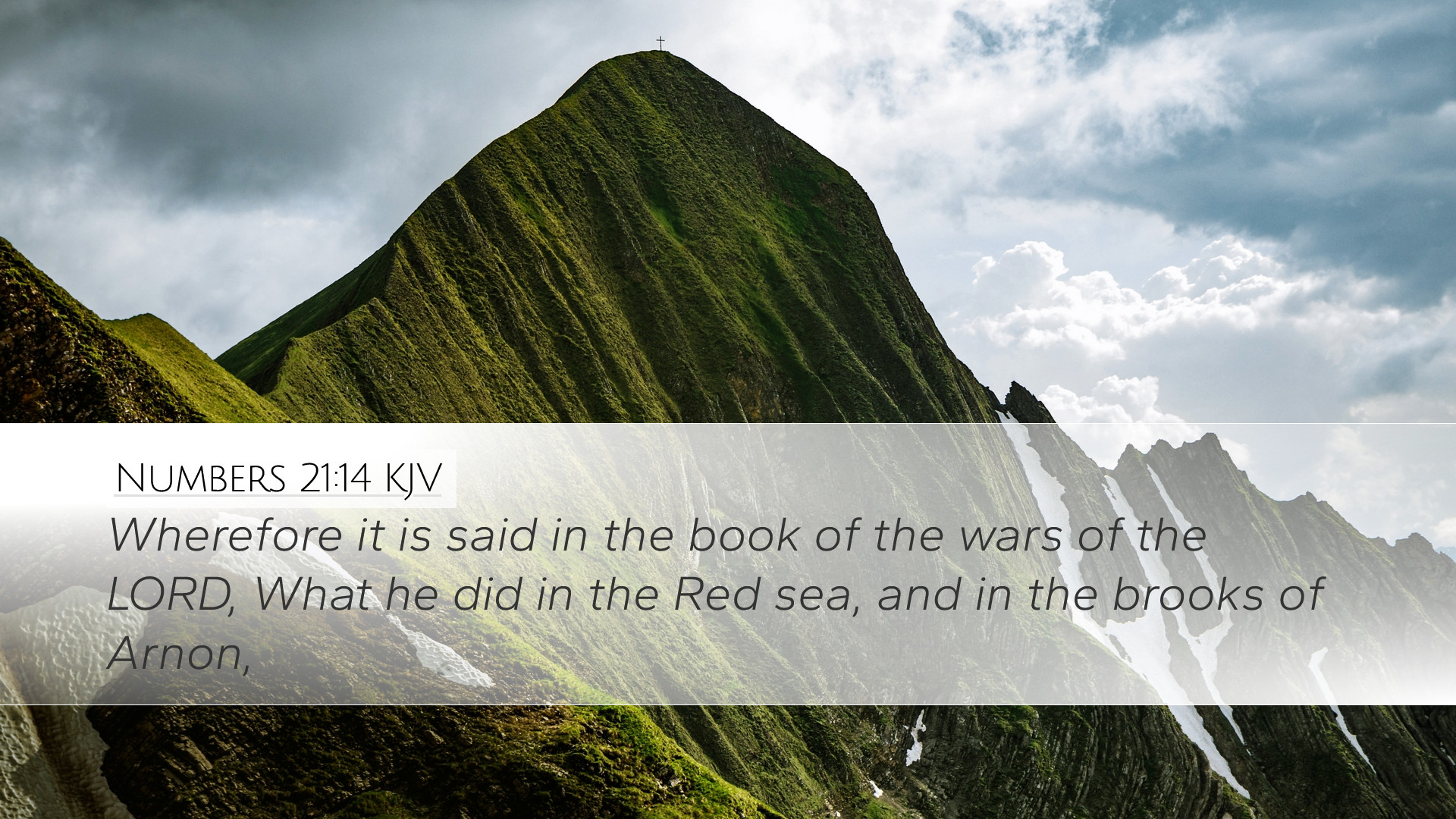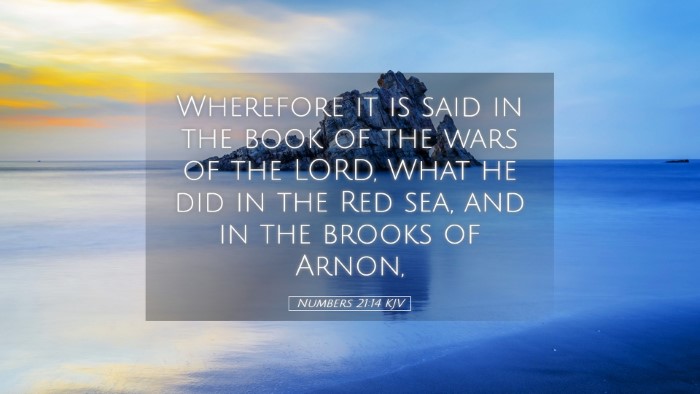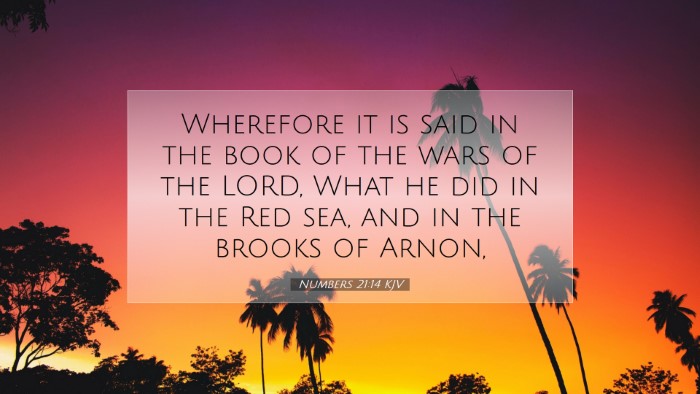Bible Commentary on Numbers 21:14
The verse Numbers 21:14 states: "Wherefore it is said in the book of the wars of the LORD, What he did in the Red sea, and in the brooks of Arnon." This verse is a part of the narrative that captures the Israelite's journey through the wilderness and reflects on significant historical events.
Contextual Overview
The context of Numbers 21 is significant as it records the travels of the Israelites after they have been liberated from Egyptian bondage. As they wander, they encounter multiple trials and battles that demonstrate both God's faithfulness and the transient nature of human struggle. This specific verse draws upon historical remembrance and urges reflection upon God's mighty acts.
Insights from Public Domain Commentaries
Matthew Henry's Commentary
Matthew Henry highlights the importance of remembering the deeds of the Lord as a means of strengthening faith among the people. He points out that the reference to "the book of the wars of the LORD" suggests a record of divine interventions. This serves as a reminder not only of God's power over natural elements, exemplified by the parting of the Red Sea but also His control over nations, illustrated by the conflicts at Arnon.
Henry emphasizes that the mention of the Red Sea is particularly significant as it represents both liberation and the exhibition of God's salvation. He notes how the miraculous events serve as pillars of faith for Israel, reinforcing that past deliverance should encourage present trust in God’s ongoing provision and protection.
Albert Barnes' Notes
Albert Barnes views this verse as a reference to a lost historical document, suggesting that the "book of the wars of the LORD" may have recorded numerous significant events, providing Israelites with a narrative framework for understanding their relationship with God. He points out that the recounting of these events fuels Israel's spiritual heritage and commitment to obey God's commandments.
Barnes particularly illustrates the dual themes of God's sovereignty and Israel's perpetual conflicts with neighboring nations. By mentioning the "brooks of Arnon," he asserts that this locality signifies the ongoing struggles of the Israelite nation that are, nonetheless, part of God's divine plan. These geographic references reiterate the idea that God was actively involved in the affairs of His people, orchestrating victories and defeats as part of their spiritual education.
Adam Clarke's Commentary
Adam Clarke provides a more linguistic analysis of the verse, suggesting that the term "book" implies a narrative full of events and lessons intended for posterity. He explores the idea that recalling these events, particularly God’s actions in the Red Sea and Arnon, serves as encouragement both to the people experiencing immediate conflict and to future generations.
Clarke draws attention to the miraculous nature of the Red Sea crossing as a symbol of God’s redemptive work and His ability to bring forth life from otherwise sterile environments. He notes that the mention of the "brooks" at Arnon signifies the fruitful endeavors following God's intervention, suggesting a parallel between spiritual fruitfulness and historical acknowledgment of God's acts.
Theological Implications
The implications of this verse for contemporary believers are manifold. First, it encourages an understanding of God’s historical actions as foundational to faith. Just as Israel was instructed to remember their historical deliverances, so too are Christians called to remember the works of God in their lives.
Secondly, the notion of recording divine intervention underlines the necessity of Scripture and personal testimony in the lives of believers. This scripture reflects the reality of life’s journey, emphasizing reliance on God amidst uncertainty.
Practical Applications
- Encouragement to Reflect: Believers should take time to reflect on their own spiritual histories, looking for God's steadfastness in their lives.
- Importance of Remembrance: Just as Israel was taught to remember, churches and individuals are encouraged to recite testimonies of God’s faithfulness.
- Documenting Spiritual Journeys: Keeping a spiritual journal or record can help in recognizing the patterns of God’s providence.
- Teaching Future Generations: It is crucial to pass down stories of faith and divine intervention to nurture faith in younger generations.
Conclusion
In conclusion, Numbers 21:14 serves as a vital reminder of the overarching sovereignty of God in the historical life of His people. The verses encourage a rich tradition of remembrance, which fosters faith, resilience, and trust among believers. It is a call to document and declare all God has done, thereby maintaining a keen awareness of His presence and power in both historical and personal contexts.


